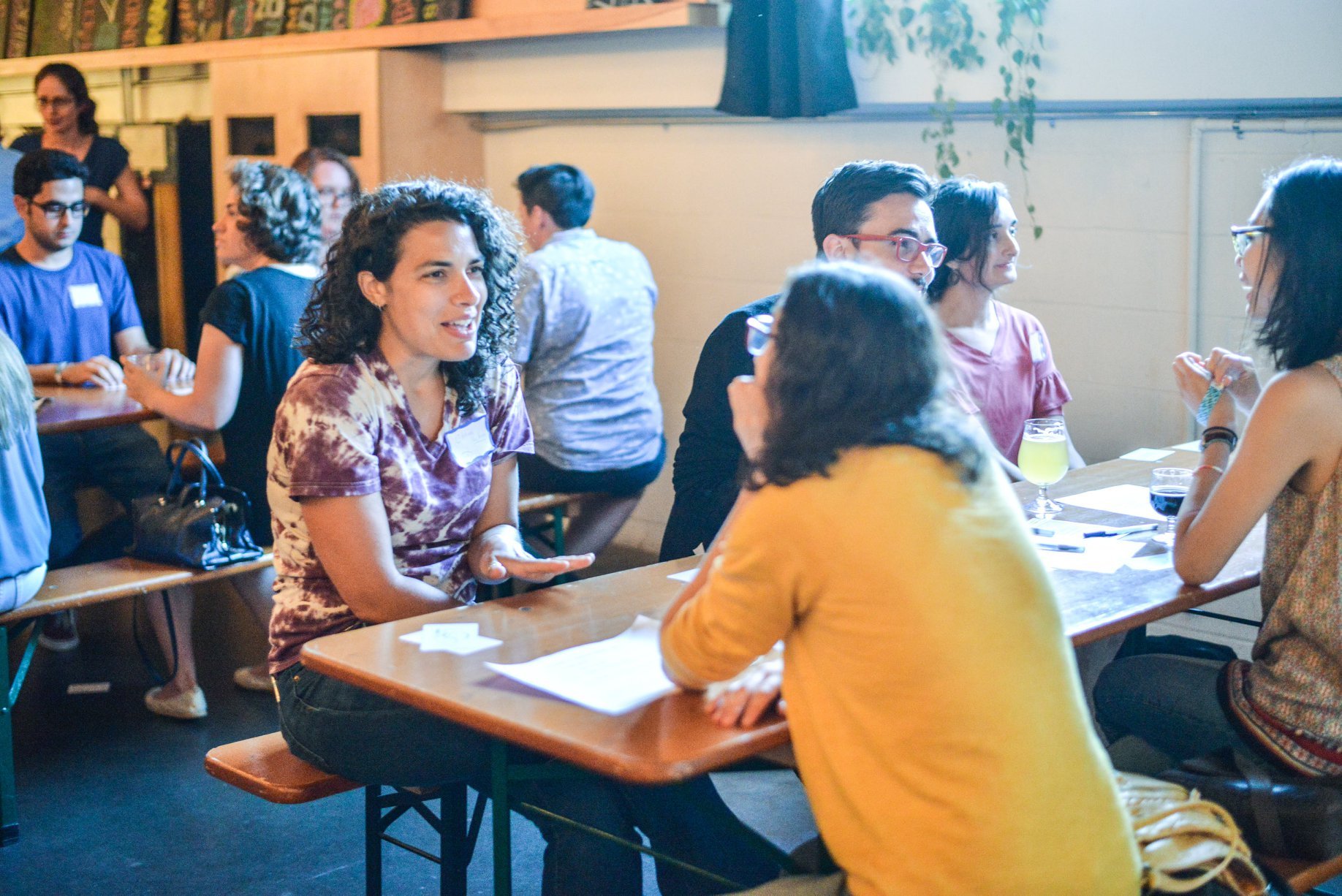How to Recharge After Social Burnout Without Disappearing Completely
Two friends catching up over something warm
The days are getting shorter, classes are back in session, and if you’re like me, you’re still finding a little beach sand in the corners when you sweep up. I spent this summer by the water, in the streets showing up for justice, planting flowers, serving homemade boba tea to friends, and hosting picnics on my lawn.
I am my friend crew’s token extrovert, but after 3 months in the sun even I’m feeling a little worn out socially. What are some strategies that can help us stay connected while we’re recharging?
The Burnout Formula
First, what are we talking about? This article from Partners Global takes the World Health Organization’s definition of “emotional exhaustion, disassociation and the creeping sense of helplessness and hopelessness”. Burnout is heavily associated with work.
In highlighting social burnout, it’s relevant to name that social burnout can develop as we try to balance out the impact work has on us. We rightly turn to friendships and socializing to reconnect to ourselves, who, and what we love. And sometimes we tip the scales into doing too much. If you notice that the hang outs no longer feel fun (or like a fun challenge); if they feel like obligations and to do’s, it may be time to dial back. But for how long?
In the aftermath of losing an exhausting job, a friend taught me a simple formula that often it takes the same amount of time to heal burnout as it took to develop. Use journaling exercises, your calendar, or asking you friends to help yourself answer the question “so when did I start feeling so emptied out?”
Four Strategies to Try
I spent a lot of my 20s being perpetually burnt out. There are so many people to know, so much work to do, so many adventures to be had! But I found I kept crashing, and being less of the person I wanted to be amid all that life has to offer.
So these days, when I need to recharge without losing touch, here’s what I do.
Focus on 1:1 friendships
If the birthday parties, concerts, pick up soccer games, and book clubs are too much, consider asking for and focusing on one on one time with specific friends. Ask yourself
Who is someone I want to catch up with more deeply?
Who is someone I want to deepen with? (maybe someone you met at Skip the Small Talk?!)
Who is someone I haven’t connected with in awhile?
Identify general blocks of time you’re usually free (for me it’s Monday, Tuesday, and Friday evening), and ask if they would like to get together in the next two weeks.
If in person is particularly draining for you, you can ask for a phone or video call, or even a block of dedicated texting time. Make a point of sharing that you’re struggling with burnout, and you actively want to be in touch with them.
Do the To Do List Tango
My dear friend and I joke at least once a week that laundry dictates our lives. If you’re a renter with a coin op in a scary basement, you’ll know immediately what I mean.
When I’m burned out, the baseline activities for keeping myself going get so much harder. Inviting a friend to cook a few meals for the week, do the laundry, go grocery shopping (in real life or on an app), scrub the litter box, or any other chore can transform into a restorative activity that helps me get a leg up on life.
A great strategy for this is to ask your friend, “hey! I’d love to hang out with you while I knock out some chores. Would you like to [do x errand with me this week]? Do you have anything you need to do, then? We can add it to our list and get a little treat after!”
Put Down the Electronics and News Feeds
When I’m already exhausted, even thinking about reaching out can feel like a stretch. It’s so much easier to reach for all the digital chatterboxes (social media, mostly, for me). As an occasional distraction on a long day, that’s harmless. But as a strategy for experiencing balance in our lives, it is an ineffective tool.
The AMA Journal of Ethics found that internet use can be both the cause and effect of loneliness. Now, disabled folks have used the internet for ages to build healthy, happy community - but the key to that is the connections are substance, not just clicks.
Set aside time for your favorite shows and podcasts, but don’t drown in them. If you enjoy something, make the time to savor it (even if it’s harder to feel when you’re burned out).
Don’t force it
Be easy with yourself. If you make healing another long list of to do’s, it will feel more like a burden than an unburdening. We all change throughout our lives, stay open to the possibility that your preferences and needs around socializing are shifting. That’s okay and normal.
Over the years, I have found that when I (or beloved friends) disappear during burnout it’s because we are clinging too tightly to an idea of who we should be rather than who we are today.
So settle in, ask some deep questions (softly), and reach out in ways that support your daily well being.
Folks at an actual Skip the Small Talk event


